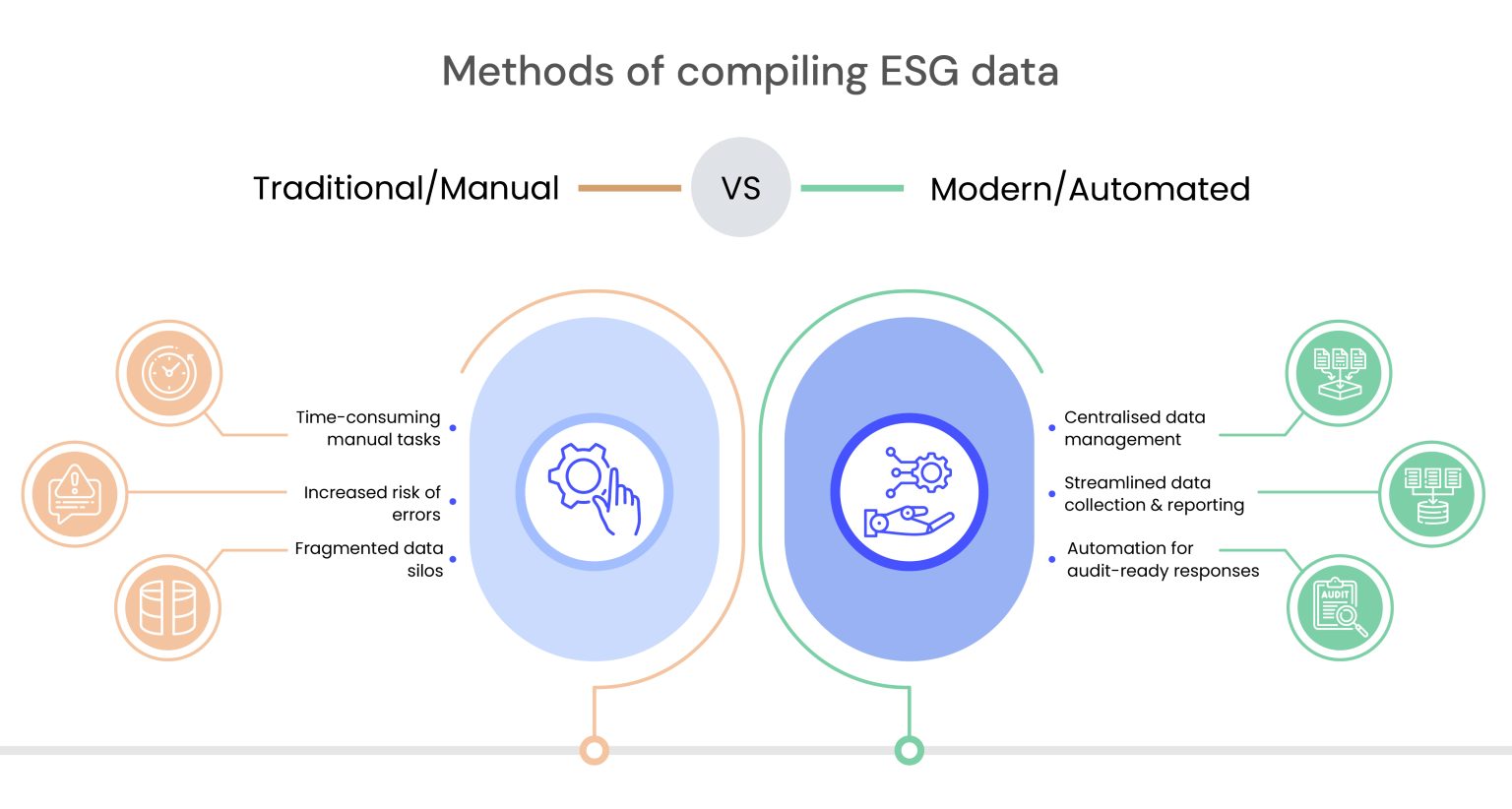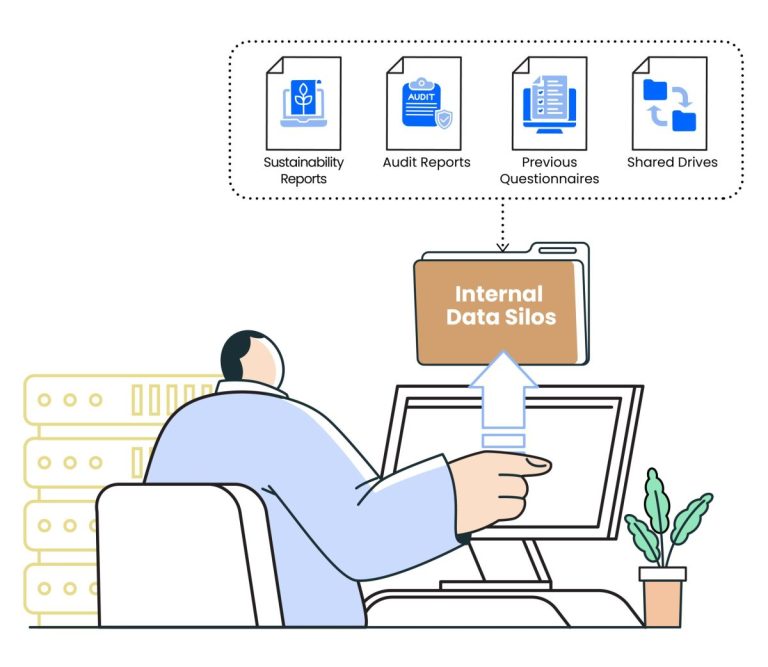In a nutshell:
- Centralised data management has become crucial in the ESG transformation journey, especially given the challenges of managing disjointed data scattered across spreadsheets, emails, and previous sustainability reports.
- AI-enabled repositories are revolutionising data management by reducing the need for manual processes, reducing time and cost.
- These repositories serve as a single, organised source of truth for ESG information, simplifying compliance management.
The growing challenge of ESG data management:
In today’s complex business landscape, stakeholders increasingly demand transparency in companies’ ESG performance, driving the need for comprehensive ESG disclosures. Companies must navigate complex regulations and manage a growing wealth of ESG data, often scattered across multiple systems. This fragmented data landscape creates silos, hindering transparency, and timely responses. More importantly, it affects effective decision-making. Without a unified view, businesses struggle to identify issues, optimise resources, and collaborate effectively, leading to inefficiencies in their ESG efforts.
Manual data collection as a cumbersome task
Traditional methods of compiling ESG data from spreadsheets, previous reports, and manual processes are labour-intensive and error-prone. These outdated practices consume significant time and resources, leading to fragmented information that impedes effective decision-making and delays responses to sustainability requests. Here’s a comparison between traditional and modern methods of ESG data collection:

Traditional challenges include:
Time-consuming manual tasks: Sustainability teams often spend countless hours gathering, organising, and managing data from multiple sources.
Increased risk of errors: Manual data entry and ESG management heighten the chances of mistakes, compromising the accuracy of ESG reports and responses.
Fragmented data silos: Disconnected and poorly structured data result in inefficiencies, making it challenging to retrieve and utilise information when needed.
Modern methods of ESG data collection offers:
Centralised data management: A central repository enables organisations to manage all ESG data in one place, eliminating silos and ensuring that all information is easily accessible.
Streamlined data collection and reporting: With an internal knowledge base, data from various sources is compiled, organised, and integrated into a unified system. This not only saves time but also ensures that the data is accurate and up-to-date.
Automation for audit-ready responses: An automated system speeds the process of preparing and delivering audit-ready responses, enabling teams to confidently meet stakeholder demands. One can get automated alerts for expiring documents and certifications.
RightOrigins acts as a central hub for ESG data consolidation

The RightOrigins platform is an AI-powered suite that helps bring together diverse ESG and sustainability data into a unified, centralised repository, serving as a single source of truth for organisations to enable the automation of ESG questionnaire responses. By integrating various data sources, such as past ESG reports, sustainability questionnaires, spreadsheets, and emails, RightOrigins ensures all relevant information is well-organised and easily accessible. This comprehensive data consolidation allows businesses to automate responses to ESG questionnaires efficiently, significantly reducing the time and effort needed for data collection and verification.
Benefits of building a single source of truth:
Consolidating data in one place boosts visibility and offers multiple benefits.
1. It saves time, improves accuracy, and makes it easier to meet compliance requirements.
2. Centralised data enhances security, allows easy accessibility and searchability.
3. Enables risk identification and helps make quicker, better decisions.
4. It also allows for easy scaling and can reduce costs by cutting out inefficiencies.
Additionally, with all sustainability-related data centrally managed, the platform provides valuable insights and supports the creation of accurate and timely reports. RightOrigins not only streamlines data management but also enhances decision-making, helping organisations achieve their sustainability goals and meet compliance requirements.
Conclusion:
The manual methods of gathering ESG data are very time-consuming, especially when you consider that different businesses have different disclosure standards; this burden is heightened by reporting organisations’ increasing desire for greater auditability. RightOrigins is designed to solve these challenges as a central hub for all ESG and sustainability data. By automating and streamlining data management processes, RightOrigins enables sustainability teams to work more efficiently in automating ESG-related questionnaires. In today’s data-driven world, being ahead of the curve and fulfilling ESG objectives requires a centralised, automated system for strategic advantage.
